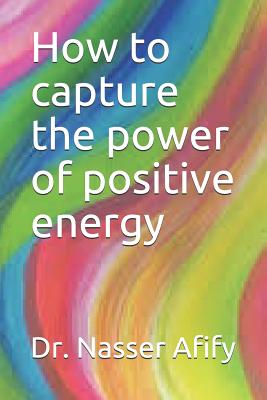How to capture the power of positive energy
$29.69
Description
Energy” in physics means some very specific things. For example, kinetic energy of an object having a mass m and a velocity v is given by 1/2 mv2. There are other kinds of energy in physics: gravitational potential energy, electromagnetic potential energy, thermal energy, etc. These are also defined by various formulas involving measurable characteristics of a physical system. The thing that makes energy a useful concept is that it’s “conserved.” That means that when you compute the total energy of a thing when you add up all its kinetic energy, potential energy, thermal energy, etc.; then the result is always the same. It’s a specific number that doesn’t change, unless you change the way in which the underlying quantities are measured.Then there’s the more loose usage of the word energy. When someone says “that person has a good energy,” to mean that the person is generally helpful and happy, they’re not using the word energy in a way that’s consistent with physics. They use the word “energy” to mean well, who knows. But it’s not as if they’re referring to a specific numerical formula for deciding that person’s “energy.”In this looser context, what is positive energy? It really depends on the person, and I doubt you’ll have a definition that has any widespread consistency. It’s one of those phrases that means kind of whatever the person wants it to mean, and for that reason doesn’t seem very useful to me.Positive thinking can be defined as the method to achieve health and happiness. It concentrates on positive qualities such as inner peace, strength, love, joy and happiness. In this direction research the positive psychology. Positive thinking is a mental technique that must be practiced wisely. It should not be misused to repress feelings such as sadness, depression, loneliness, etc. Optimism is a mental attitude that interprets situations and events as being best optimized. A common idiom used to illustrate optimism versus pessimism is a glass with water at the halfway point, where the optimist is said to see the glass as half full, but the pessimist sees the glass as half empty. Optimism may be linked to health. Optimists have been shown to live healthier lifestyles which may influence disease. For example, optimists smoke less, are more physically active, consume more fruit, vegetables and whole-grain bread, and consume more moderate amounts of alcohol.The relationship between optimism and health has also been studied with regards to physical symptoms, coping strategies and negative affect for those suffering from rheumatoid arthritis, asthma, and fibromyalgia. A meta-analysis has confirmed the assumption that optimism is related to psychological well-being: “Put simply, optimists emerge from difficult circumstances with less distress than do pessimists. Optimists seem intent on facing problems head-on, taking active and constructive steps to solve their problems; pessimists are more likely to abandon their effort to attain their goals.The psychological learning theory suggests that positive thinking can be learned. An athlete trains for several weeks or months an external behavior. He carries a certain behavior, and after some time he masters it. Thoughts can be understood as the internal behavior of a person. When we consciously practice some time a positive mental behavior, then our mind accustoms to positive thinking. It automatically responds to certain external situations with positive thoughts.Positive thoughts lead to positive feelings. And positive feelings lead to health and happiness. To train positive thoughts has a great gain. It gives us a happy and healthy life. Especially if we practice also regularly sports yoga, walking, enough relaxation enough breaks, enough sleep, daily meditating and a healthy diet at least an apple a day.The learning method consists of four steps. First, we need a positive thought system that suits us like the philosophy of happiness.
Author: Afify, Dr Nasser
Topic: Psychology
Media: Book
ISBN: 1096302004
Language: English
Pages: 168
Additional information
| Weight | 0.56 lbs |
|---|---|
| Dimensions | 9.02 × 5.98 × 0.39 in |












Reviews
There are no reviews yet.